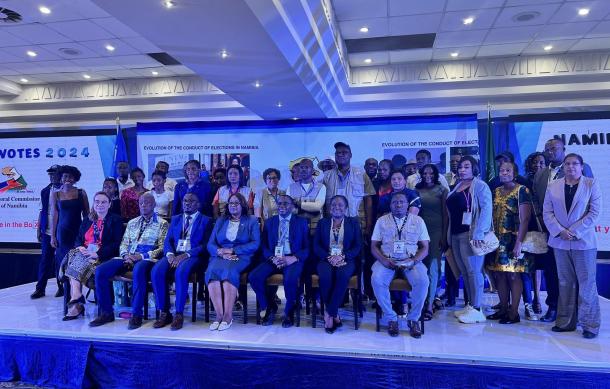
The Electoral Commission of Namibia (ECN) has pledged to fully cooperate with international and local observer missions as well as the media during the Presidential and National Assembly Elections.
The Commission's Chairperson, Dr. Elsie Nghikembua, made the commitment at a briefing to update election observers and the media on the state of preparedness for the elections.
The presence of observers and the media has always helped improve behaviour by encouraging election participants to follow legal and ethical rules.
Dr. Nghikembua said the Commission has recorded several positive strides that lay the foundation for credible elections, revealing that the Commission had a successful voter registration exercise that registered 90% of the projected eligible voters.
The preliminary turnout during the special voting shows that 14,203 ballots were cast locally, while 2,147 ballots were cast at Namibian diplomatic missions.
These will be included in the polling results on November 27th.
Dr. Nghikembua informed challenges encountered related to the procurement of ballot papers.
"Within the provisions of the public procurement regulations, the commission made a critical decision to cancel the open international bidding and pursue an emergency procurement method to avert the risk of not getting the ballot papers on time for polling. If the commission followed the international bidding method, the delivery date would have been outside the electoral period. Which meant that ballot papers would have not been available for polling."
She added that the commission has been working closely with the security cluster and has made arrangements to have police at every polling station.
The Commission assured the election observer mission and the media of its full cooperation.
"I am pleased to report that we have issued accreditation to 14 local and international observer missions, totalling 453 individuals. Additionally, we have also accredited 13 local media houses, representing 592 individuals, including five freelance journalists. Furthermore, we have accredited 10 diplomatic missions, representing 149 individuals as well as three independent youthful local observers, and these ones are university students doing political science."
Dr. Nghikembua explained that the commission has made several changes based on recommendations from observers and invited them to continue suggestions during their work.
She also mentioned that while teams have been sent out, more effort should be made to include rural areas in their assessments, as past international observers often focused on cities and larger towns, missing the unique factors that affect voting in rural communities.
The Chief Electoral and Referenda Officer addressed concerns from citizens about what the commission does after elections.
Petrus Shaama explained that the commission works on several tasks to prepare for the next elections.





